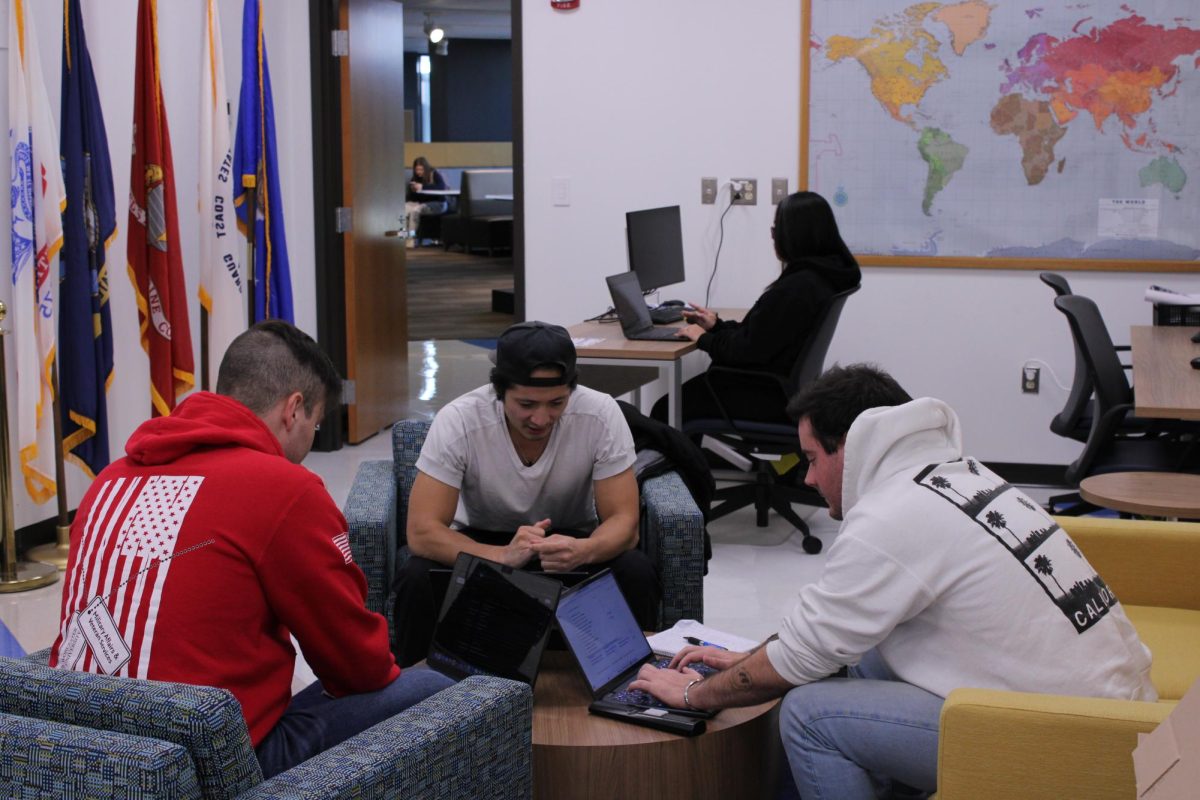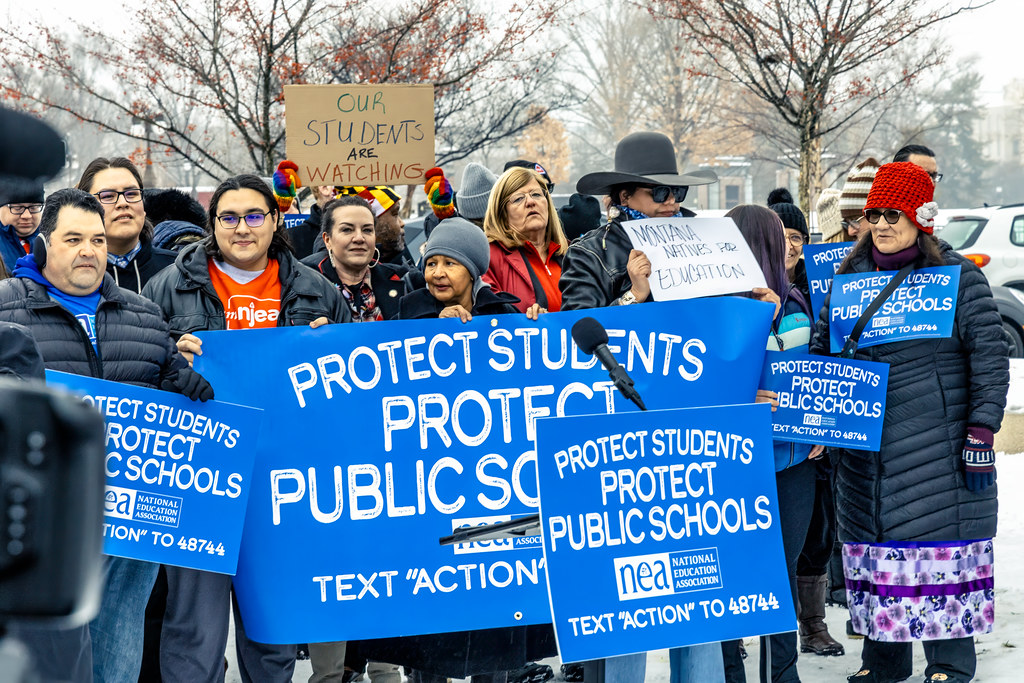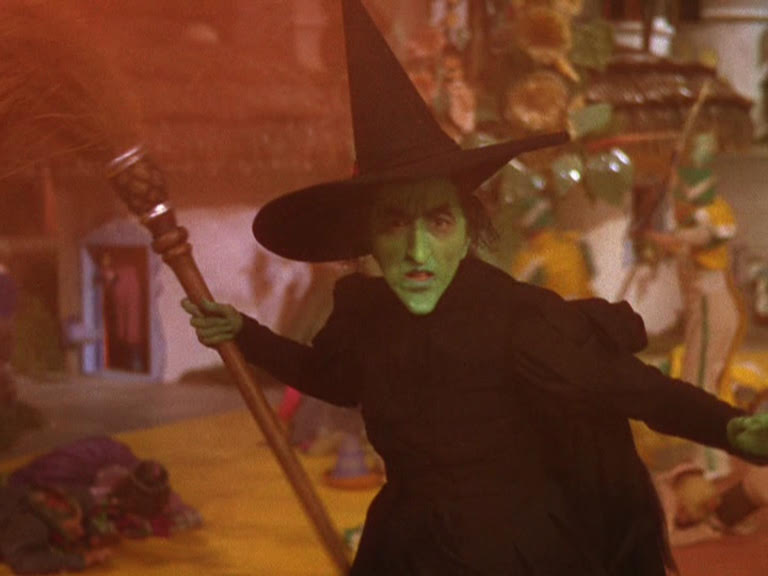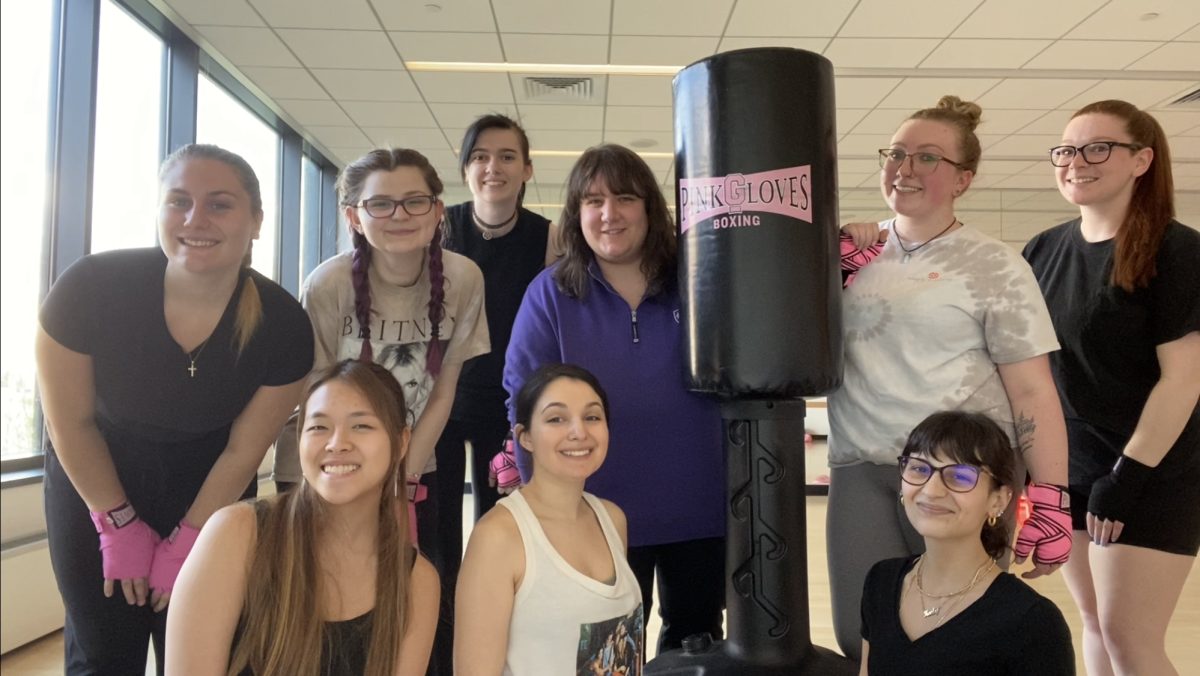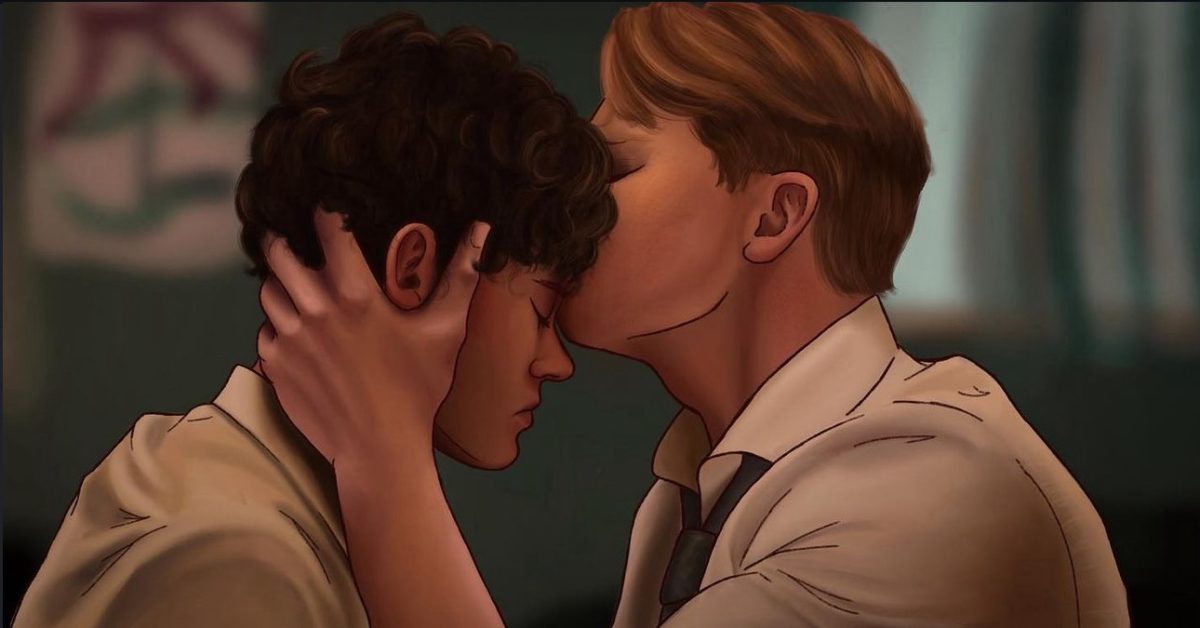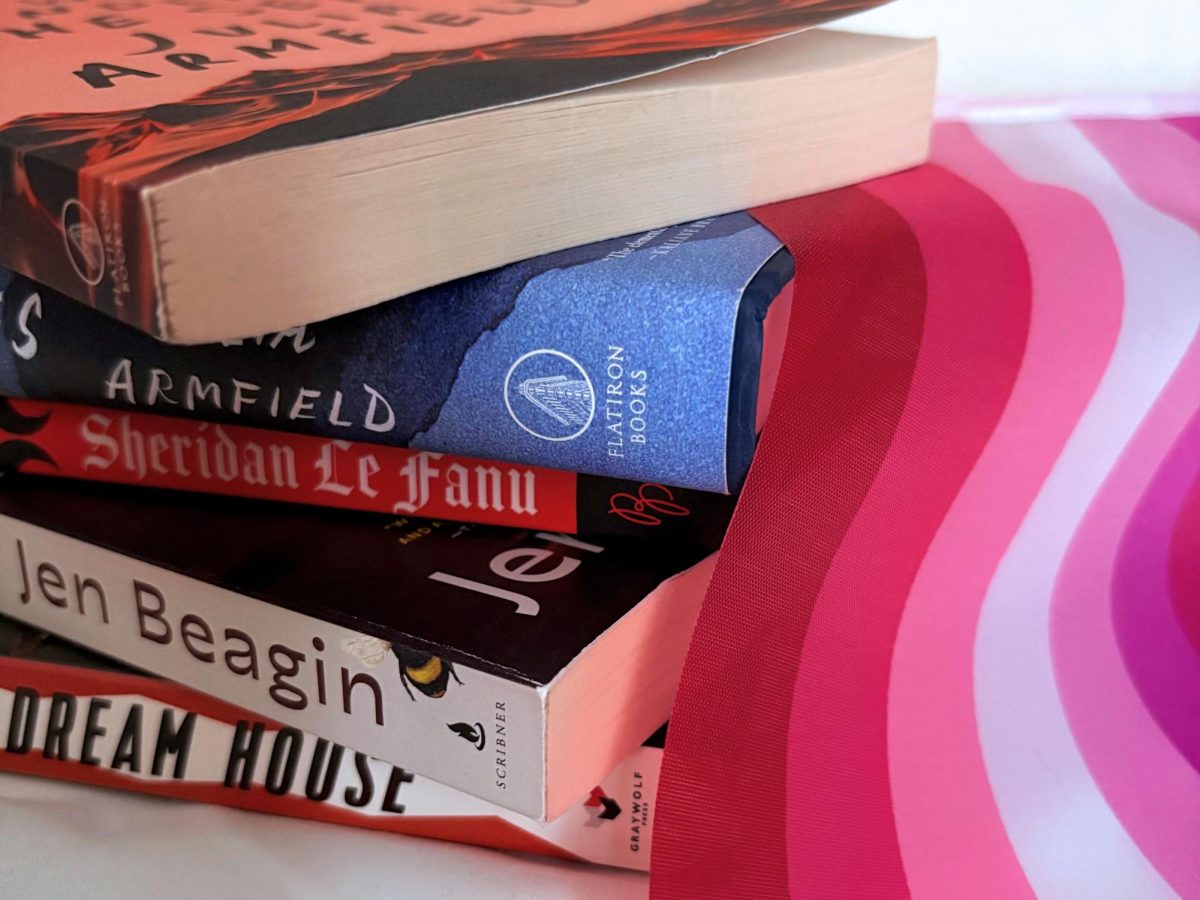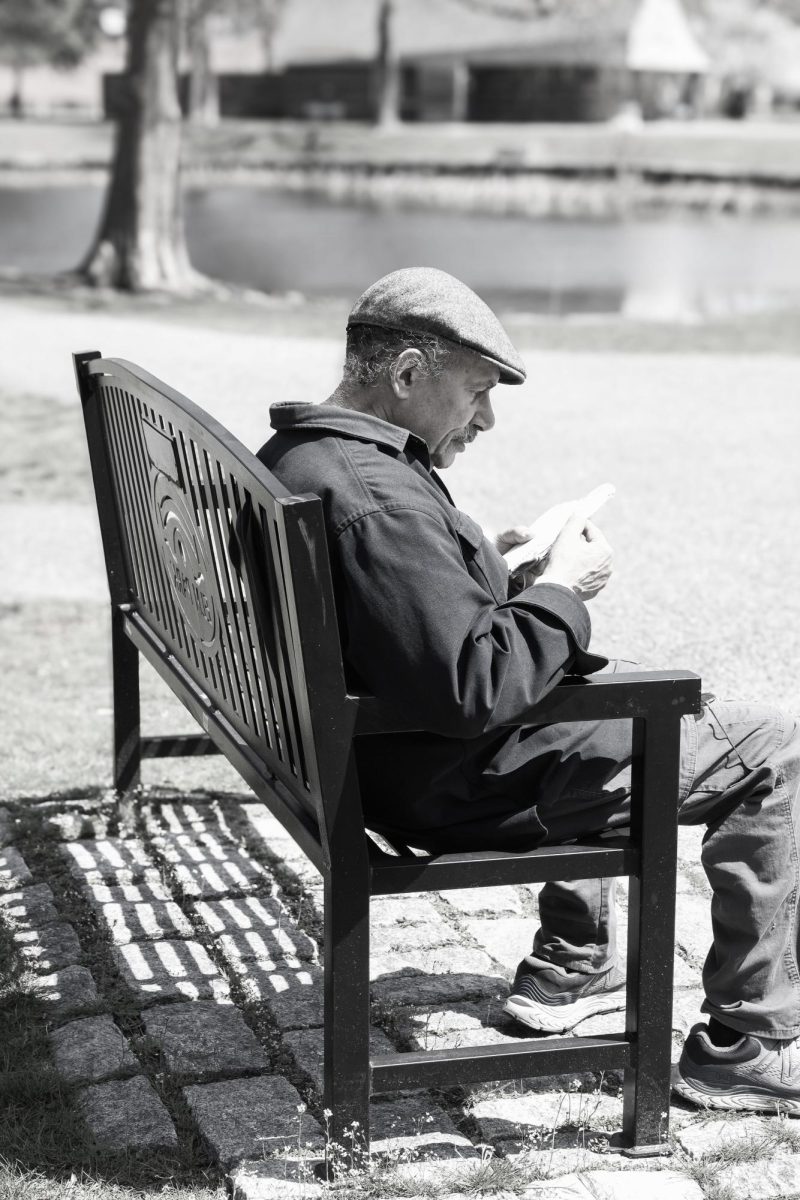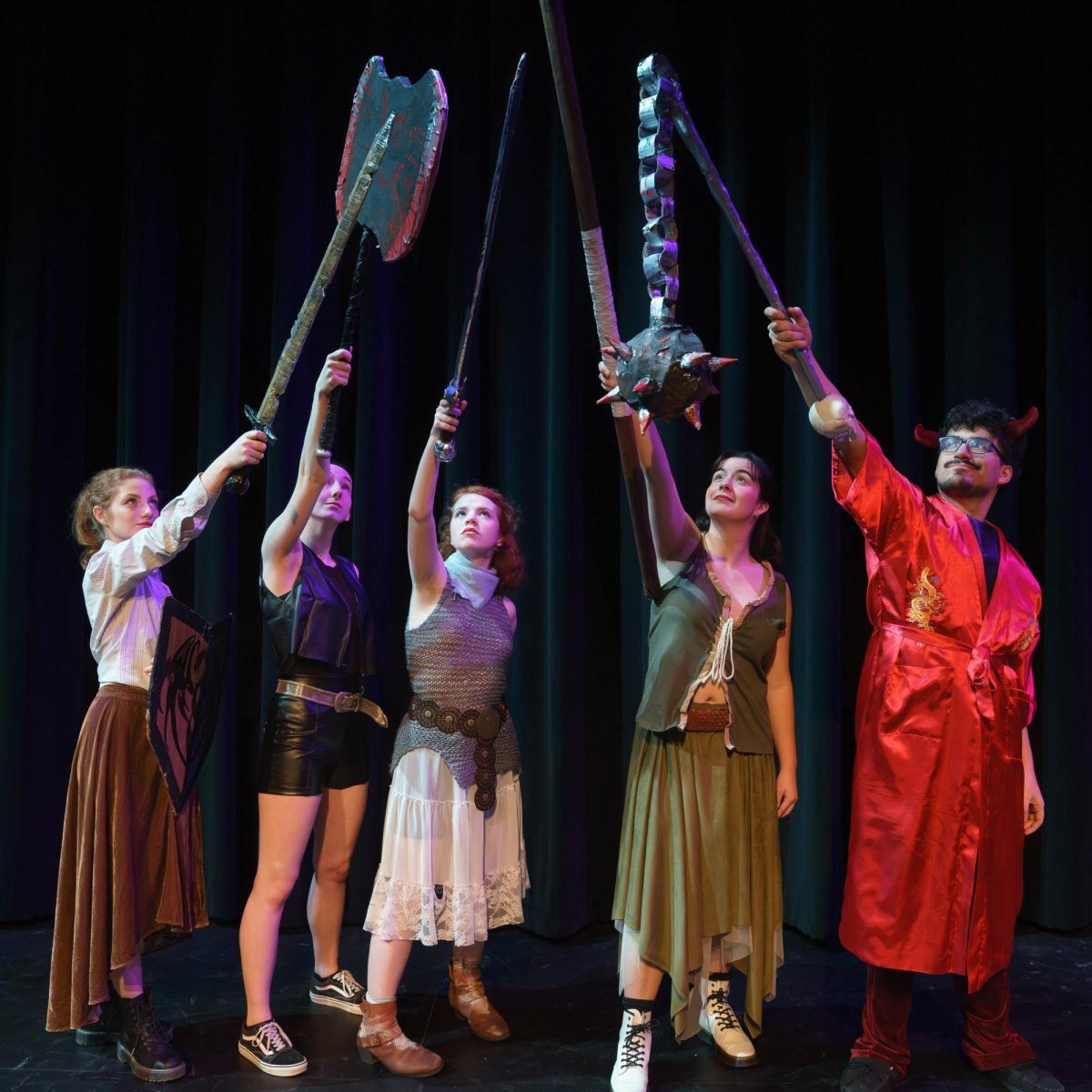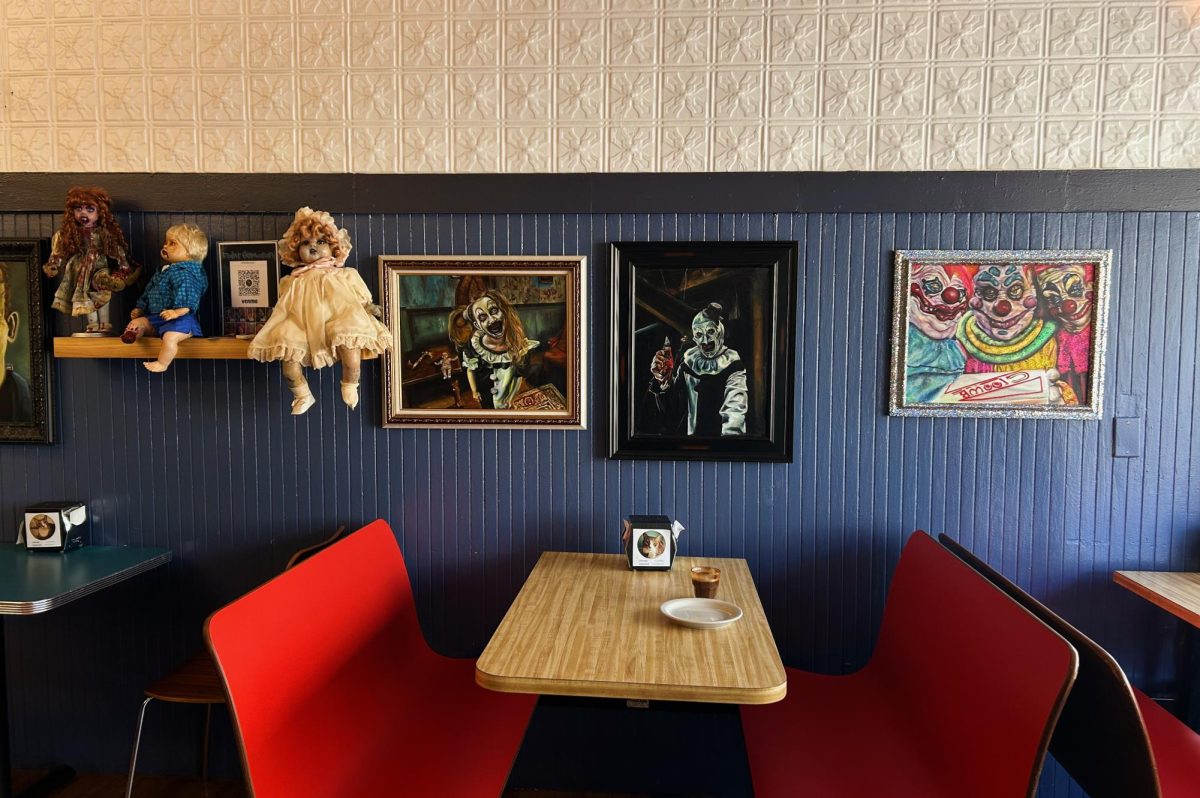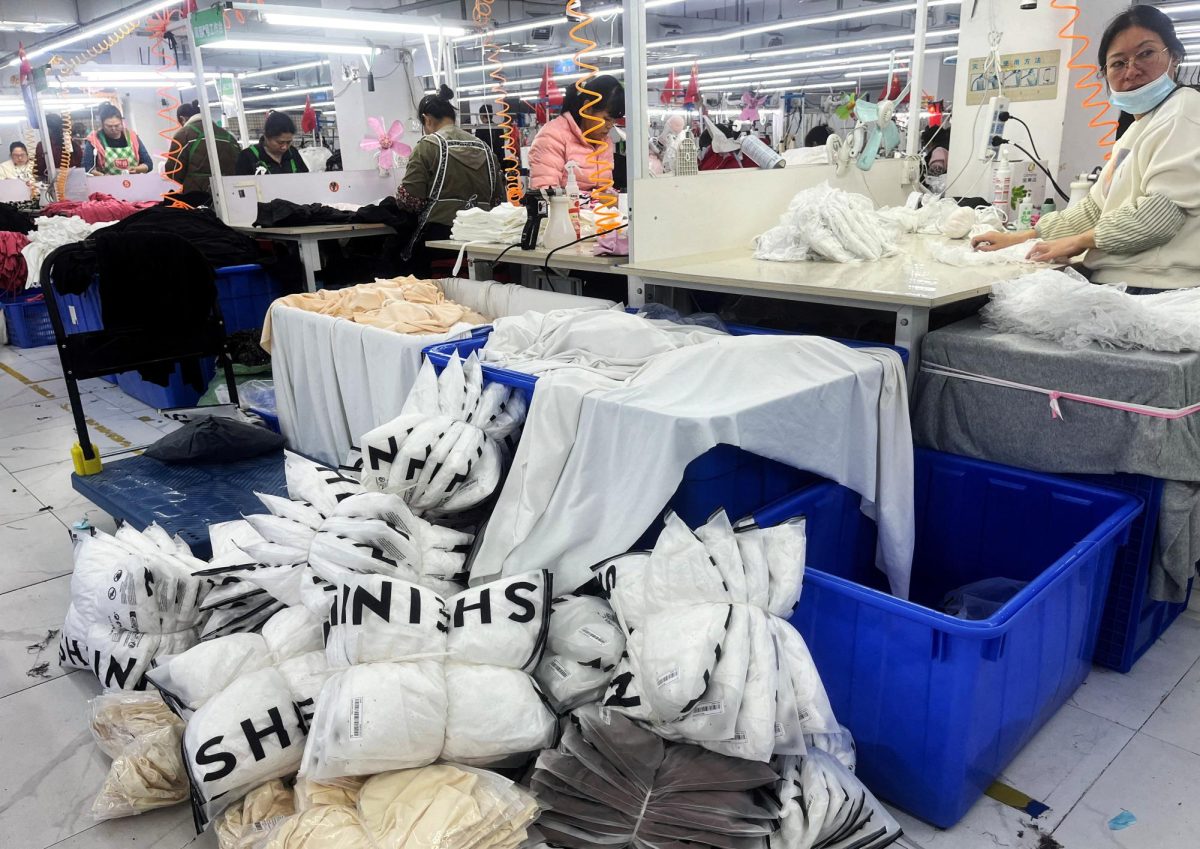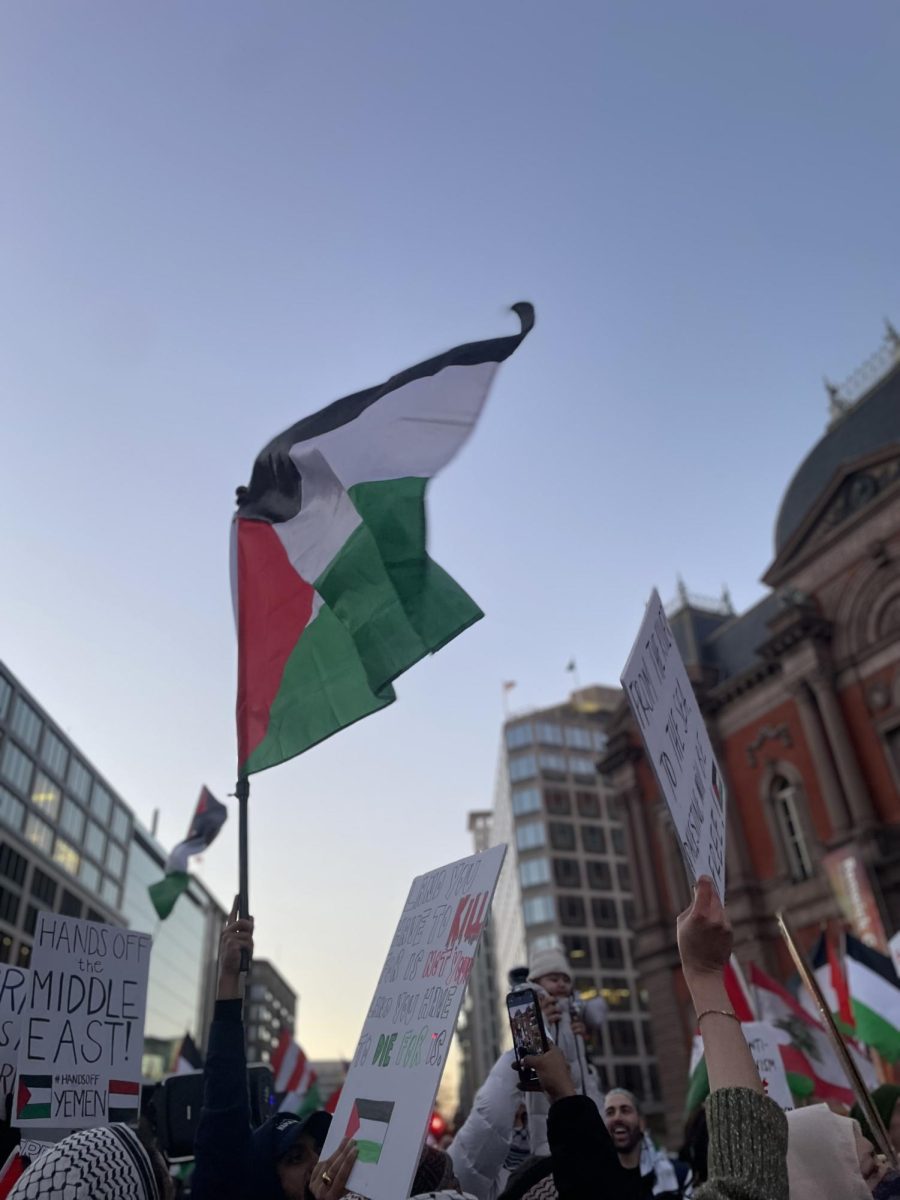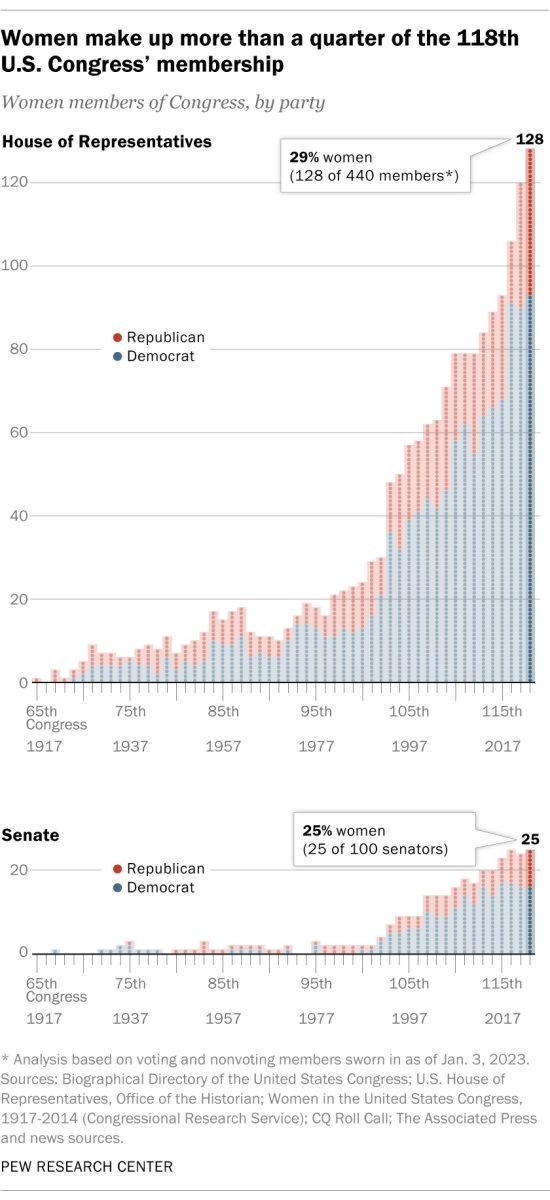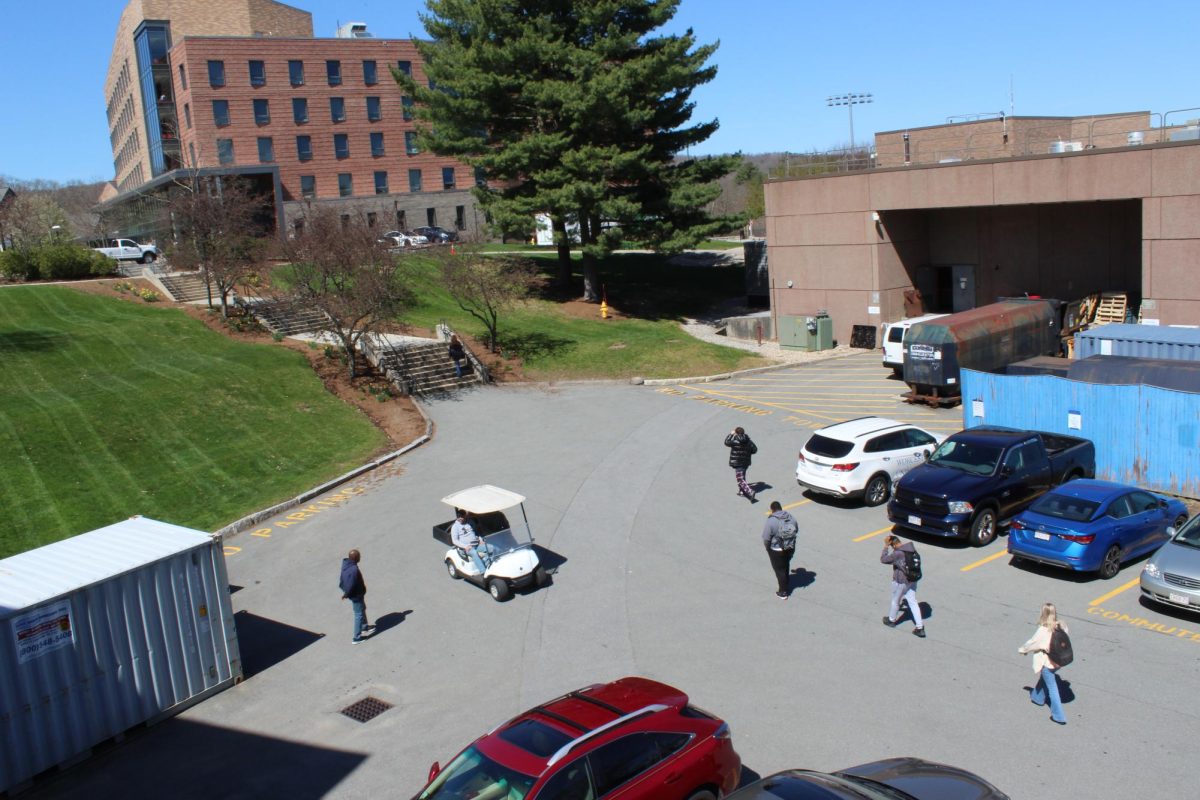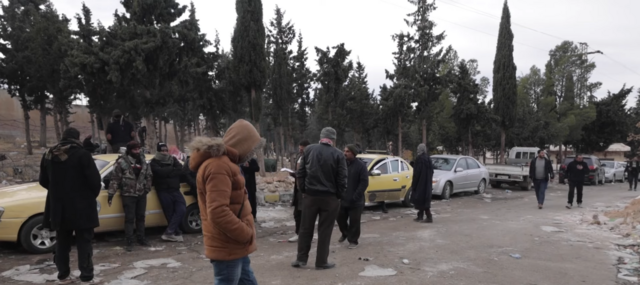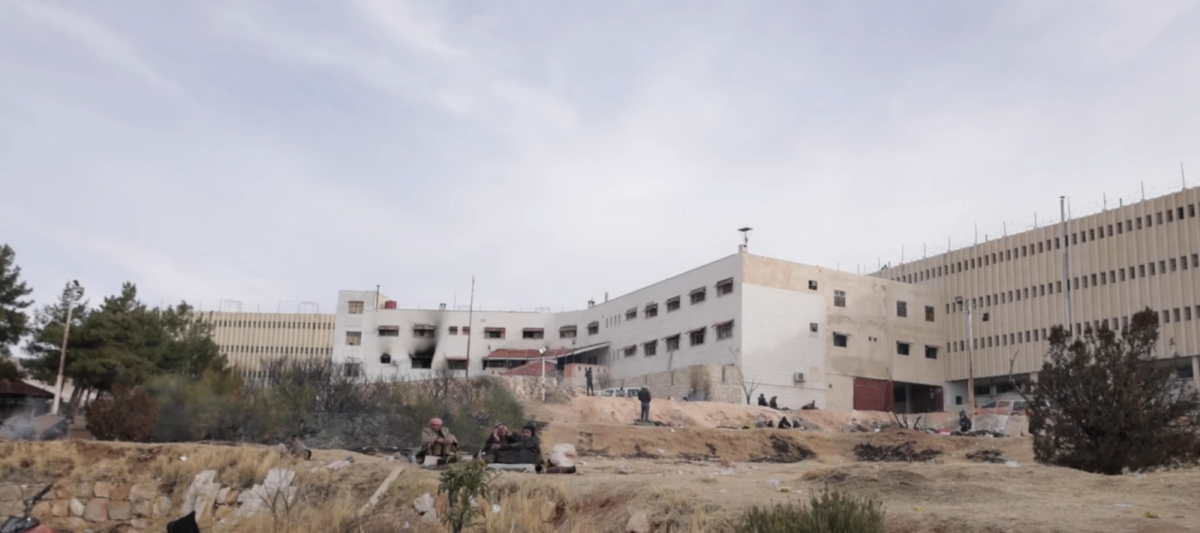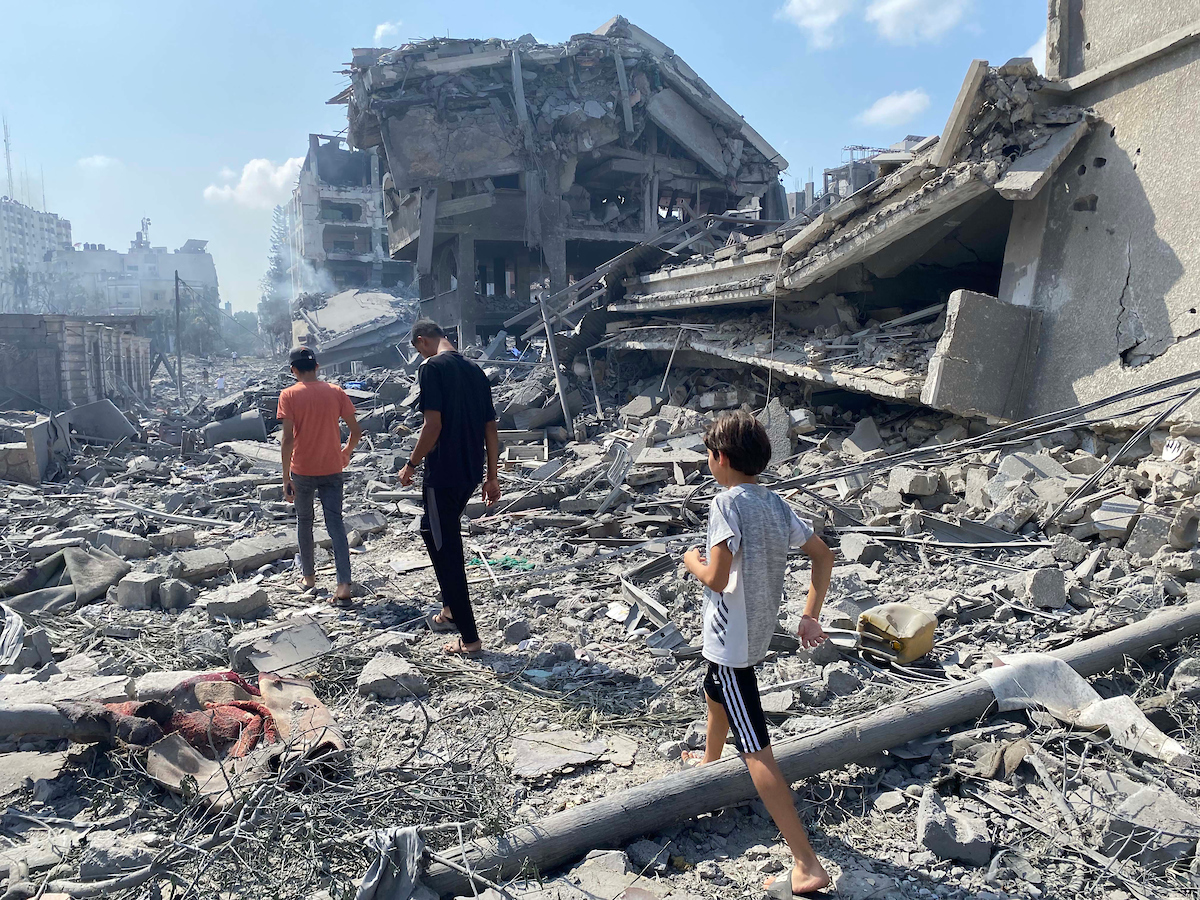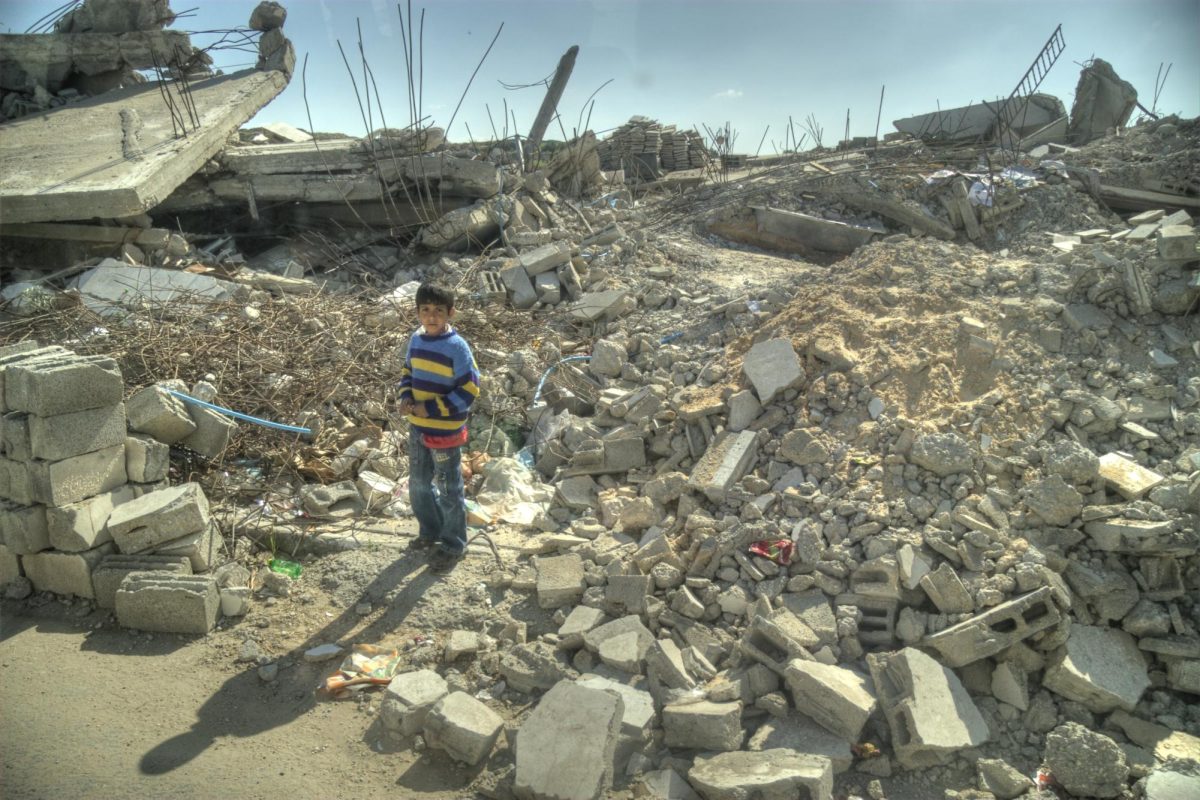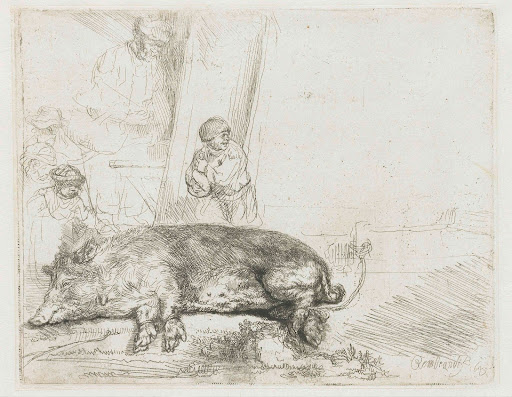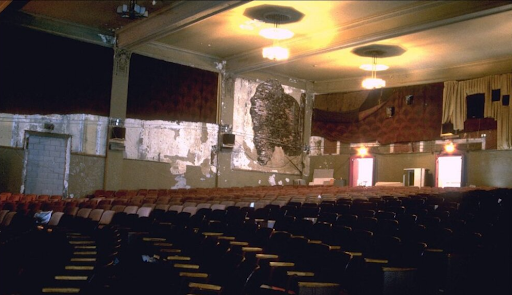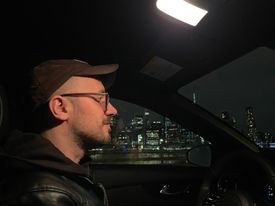I was tired as I wiped the butter-like substance off the glass counter that served as a concession stand at the Village North Theater. I had been working there since shortly after moving to Chicago from Iowa City a few months prior on a whim. It was well after midnight, and Stigmata still hadn’t let out. While technically I was supposed to clean the counter off with the cheap knock-off Windex the theater supplied, I did the same thing everyone else did, wiping away only the most egregious piles of butter-like grease with a dry napkin. Cleanliness wasn’t a priority at the Village North.
It was 1990s Chicago, in a neighborhood called Rogers Park which was, in those days, a high-crime area colloquially referred to as ‘the ghetto.’ Earlier in the day, I had given a teenage girl a free popcorn, at the manager’s request, as compensation for her troubles when she came out of Theater 1 yelling that a rat had run over her lap. “I’m used to them runnin’ over my feet,” she said, “but this motherfucka’ ran up my legs.”
The theater was a perfect environment for rats, who famously love darkness. Even when the lights were on, it never seemed particularly bright. Everything aside from the candies and the word ‘popcorn’ in red lettering on the popcorn machine, was either brown or some other earth tone. The three theaters themselves were darker still and had plenty of places for rodents to hide.
Early in my tenure, the rats led to a great drama. As I was standing with Brian, my undocumented Irish coworker, exchanging profane jokes, I heard Connor, the Irishman who ran the projection booth upstairs, scream, “I won’t let you kill him! He’s my friend!” (Aside from me, the staff was composed entirely of Albanian and Irish people living illegally in the United States.)
“Oh, shit,” one of the customers said. “Gonna be another stabbin’!”
As it turned out, there was no stabbing that day. There had been one earlier in the week, but, like the others, it occurred outside the theater. Connor had simply responded negatively to the manager telling him that he was calling an exterminator to kill the rats. It was well-known that the projectionist had befriended one of the largest rats in the projection booth, naming him Ben and feeding him stolen popcorn and candies. Every so often, someone would come out of one of the theaters and complain that there was a large silhouette of a rat on the screen. The response was always some variation of “don’t worry, that’s just Ben. He’ll move soon.” Connor, by threatening all sorts of bodily harm on the manager, was able to prevent the extermination of his friend Ben or any of the theater’s rats.
“You clean like a bitch.” It was Robert, my tall, lanky Irish coworker. “Doesn’t he clean like a bitch?”
“He does everything like a bitch,” responded Brian, a curly-haired, blonde Irishman coming up behind me. “Reckon that’s ‘coz ‘at’s what he is.”
“No,” I said. “I’m just adapting to Irish culture.” They laughed. “Look,” I said, pointing to the Stigmata theater. The doors had opened and people were leaving; the movie was done and we could, as soon as the stragglers were gone, go home.
“Oi, we get to risk our lives at ‘oward in a few,” said Aidan, who, when I had extended my hand to shake his upon first meeting him, had responded, “There’s only two things I use m’ hands for,” and made an obscene gesture. Most of the Irish lived in the same building near the Howard stop of the L’s red line. I lived in the neighborhood, close to the Morse stop of the same train. I was a 15-minute walk from home. My neighborhood was considered safer than theirs; there were slightly fewer violent assaults per week. Molly, who lived in an even safer neighborhood a few blocks south, had decided to give up the American dream — and the Village North — to move back to Ireland after being assaulted in the doorway of her building one night.
“Why does half of America act like the fookin’ IRA,” her roommate, our coworker, Julie, had asked right after that. “Wandering around killing and raping each other for fookin’ pleasure?”
Their neighborhood was worse, but I envied my departing Irish coworkers, as they walked home together, while I walked home alone. Everyone knew that individuals were much easier marks than groups.
“Oi, Ellie, you fancy given’ us a ride?” Aidan asked our Albanian coworker, who had someone picking her up in a car.
“Eh, f-cka you,” she said, in an accent that sounded almost Italian. “I don’a wanna that any one o’ you, so ugly, definitely not a bigga group,” she said, and walked off to her car, laughing. She had mistaken Aidan’s sincere request for the usual vulgar banter.
As Ellie, then the Irish, departed, my manager wished me well. “It could be worse,” he once told me of the neighborhood. I thought, though, that his sense of risk might be off. A gay guy who hung out in the city’s and neighboring states’ gay bars, he had once almost gone home with Jeffrey Dahmer.
I set out on the journey I’d been making for the past few weeks: left on Sheridan (brightly lit, a few open businesses, and lots of cars; less likely to be murdered), across Pratt (getting darker), and then left onto Farwell (only residential buildings), across an alley (do not turn, suicidal) and Lakeside (danger zone), eventually arriving at my building on Farwell.
Over the past quarter century, things have changed. The crimewave that engulfed the country from the ‘70s through the ‘90s receded and the air of menace that hung over large and medium-sized American cities during that period is now absent. Things everyone knew during that time are uncommon now. For example, I knew intuitively that when you walked down the street in a dark area, you walked in the middle of the road. There were streetlights in the road and being away from the sidewalk made it far more difficult for someone to pull you into an alley or an open doorway.
As I walked along, I didn’t feel frightened. Everyone talked about crime and violence, and everyone in the area heard the sounds of gunfire nightly. You watched out for crime in the same way you would watch out for, if you were a patron of the Village North, climbing rats. Just remember the rules — walk forward, head up, look like you know where you’re going, don’t dress in such a way that people might think you’re wealthy, and so on — and you’d be fine.
I turned onto Farwell. The buildings were uniform. They were large, courtyard-style buildings, meaning they were shaped like hollow squares without the fourth side; the one which would face the street would be missing. The other three sides were full of apartments — 25 or so to a building, and in the middle was a courtyard, often with a fountain or some other decorative feature, now in disrepair. Over the years, tall, wrought-iron fences had been installed in front of the buildings. It had been (and would become again, I now know) a nice neighborhood, but white flight (my roommate and I were the only whites in the neighborhood) and the crack war had taken their toll. Now, the buildings which had once been beautiful were crumbling, and instead of beautiful marvels of architecture, they were dark and foreboding.
Under my shoes, broken glass cracked. There was always broken glass, and I could never tell where it came from.
“Fuck you doin’ up here?”
I froze. The tone of the voice was unfriendly. I could answer, but if he wanted a fight, he might have a knife — or worse. I could run to my apartment, but I was tired.
“A Blood in my neighborhood,” the voice asked. “Fuck outta here!” I turned towards it. In front of me stood a guy who looked to be in his late 30s or early 40s, wearing Timberlands, a camouflage jacket, and a blue bandana.
“What?” I asked.
“I said, the fuck you think you’re doin’ here?”
“This is my neighborhood…”
“The fuck it is,” he said. “Get your ass back down to the south side.”
Now I was growing annoyed. “Look,” I said, “What do you want? Are you going to mug me? I got like ten bucks, so… whatever.” He started walking over to me. “But seriously, dude, I just moved here from…” I realized it might not be wise to say Iowa — “Minneapolis.” That seemed like a safe choice. It didn’t give the country, just-off-the-farm vibe that Iowa would, and it was close enough that maybe someone who could only afford to live in Rogers Park could conceivably have moved from there, yet far enough that he probably wasn’t familiar with it and wouldn’t ask many questions.
“Fuck Minneapolis,” he said.
I didn’t know what to say, exactly. “I like it. It’s okay.”
His eyes narrowed as he stared at me. I stared back, not wanting to lose a staring contest, but also wondering why he didn’t just hurry up and mug me.
“The fuck would a Blood move into Crip territory for? Tryn’a start a war?”
“Man, I don’t know what you’re talking about,” I said. “Bloods, Crips, really, dude? I just came from I — Minneapolis. The neighborhood’s cheap. I work in a movie theater.”
“The Village North? Rats?”
“Yeah, yeah, with the rats On Sheridan. And I’m trying to go home, and you’re… what? Talking about Bloods and Crips?”
“You advertisin’ you a Blood,” he said.
I told him I had no idea what he was talking about, and he grabbed my hat. “The fuck you wearin’ this for?!”
It was a bright red hat, which was, to be honest, pretty ugly. It was made of the kind of synthetic fiber that immediately dries but which provides no comfort. Even though it wasn’t winter, Chicago got cold, especially so close to the lake, so I wore it. It was the only hat I had, and, what’s more, it had been given to me by a girl named Rhea. If I hadn’t moved to Chicago, we probably would have been a couple. We had been good friends and shared a few moments, but she finally broke up with her boyfriend Ben only when I had already made plans to leave and paid a deposit.
“Well,” I said, “There’s this girl, Rhea, and she was going out with this guy, Ben, so…”
“You on crack, motherfucka?” he asked, shaking my hat.
I told him no, that it wasn’t popular in Minneapolis, and slowly pulled my hat away from him, correctly guessing that he didn’t actually want it.
“You wearin’ this hat…” he started, confused. “…This hat, because some girl gave it to you?” He was slowly realizing that I wasn’t in a rival gang. “You can’t wear this shit here.”
I was getting as frustrated as he was confused. “The fuck I can’t wear my hat? This is America,” I said. We stared at each other for a few moments. I wanted to break the silence, but didn’t know what to say. Eventually: “Communism’s been dead for, like, more than five years.”
He stared at me a few moments longer, and then started to laugh. “Communism? The fuck?” I started to laugh as well. If he wasn’t going to murder me, it was kind of funny, especially if he wasn’t even going to mug me, either.
“I’m gonna go,” I said. “To my apartment, right there. Where I’m not a Blood.”
“You better not be lyin’.”
And so I went home, back to the two-bedroom apartment, a big, gorgeous living space with hardwood floors which I shared with my friend/roommate, and went to sleep on the couch, as I hadn’t yet afforded a bed.
Over the next couple weeks, I saw the Crip who’d stopped me most nights as I walked home in my red hat. At first, he’d just yell at me something like, “You better not be no fuckin’ Blood!” I’d answer back, at first very tersely, “Not a Blood.” Eventually, we would say more and more to each other, and developed a rapport. After a while, I was saying things like, “See you on [such-and-such a day], because I’ve got the day off.” We began talking, even becoming friendly. I told him I’d actually moved from Iowa — let it slip, actually — and about Rhea, how we still talked a few nights per week, even though long distance was expensive (in those days in Chicago, you had to pay for every call you made, even if it was across the street). Of course, we were on a first name basis by then; his name was Horace. I told him it seemed a strange name for a Crip hanging out on Farwell in Chicago; the name sounded very — to use the term my Irish coworkers used — posh.
Then, one night, Horace wasn’t there. Instead, out of the darkness emerged a different guy, wearing, like Horace, a blue bandana, but, unlike Horace, he had a Bulls baseball cap and was brandishing a knife. “The fuck you doin’ here, boy?” he asked.
“Come on, man,” I said. “I know where you’re going with this. You’ve got it wrong.” Still, I was alarmed, because he was approaching me with the knife. It wasn’t a particularly large knife, but someone had been stabbed at the entrance to the theater a few days before with an even smaller knife, and it seemed to have done a great deal of damage.
As I was thinking about the knife, the new guy was talking. I picked up the tail end of what he was saying: “…maybe send you back to the South Side with your face rearranged.” This guy was a lot shorter and thinner — and younger — than Horace.
“Look,” I said, “I’ve already talked about all this with Horace, and —”
“Horace?” the little guy asked, recognition on his face.
“Yeah,” I said. “He’s usually here. I don’t know where he’s gone…”
He told me Horace was “out sick.” I didn’t realize you could be out sick from standing on the corner in your gang colors. “Can you do that,” I asked. “Be out sick?”
“Why the fuck not?”
I had no good answer. “Well, is he going to be okay?”
“Just a cold or some shit.”
I was relieved. “Look,” I told the guy. “I’m going home. I work over at the Village North and I’m tired. Customers were yelling all day about rats.”
“Word,” he said. “I go to the Sony theater in the Loop. The rats at the Village freak me the fuck out. There’s a motherfuckin’ monster rat or some shit that gets projected on the screen. Fuck that.”
I told him how I had worked at the Sony theater briefly, but that the Village North paid under the table since almost everyone was illegal, so I took home more. I also told him that Ben wasn’t that big — more like the size of a cat than a monster — but that his being projected onto the screen made him seem gargantuan.
“Why don’t they kill it?”
“The projectionist loves it,” I said. “He’s Irish.”
“Them Irish…” he said. As I started to leave, he remembered that I might be a Blood. I told him I wasn’t, and to ask Horace.
For a while, my walks home were unencumbered by meetings with anyone, aside from a few crackheads here and there. One night, however, that changed.
It was rainy and there was fog in the air. I felt as if I had stepped into a film noir version of my nightly walks. As I proceeded, a bulky black figure stepped out of the mist. By ‘black,’ I don’t mean racially, though he was; I mean that the streetlights behind him mixed with the fog, causing him to appear only as a silhouette. I looked behind me; another black silhouette. More of them stepped out. The situation seemed ominous. I couldn’t help but to think that it was all a cliche; very mid-century European cinema. I didn’t want to be murdered by cliches.
They approached, closer and closer. Eventually, they emerged from the fog, and I found that they were all wearing blue bandanas. Crips. Had the little guy from the other day ratted me out? About a dozen of them surrounded me, staring at me.
I couldn’t stare back at all of them, because it’s simply impossible to stare at a dozen people at once. I just looked from person to person, and they looked at me. It felt as if this went on for hours, standing in the middle of the road in a once beautiful, now fallen neighborhood.
Eventually, another figure emerged, tall and stocky, no baseball cap. As he came closer, I realized: “Horace!” I greeted him, forgetting for a moment the menacing group around me. “How have you been?”
“No time for that,” a voice said from behind me. “You can’t wear that hat anymore.”
I began to protest: “It’s my hat… This isn’t communism; it’s Chicago…”
“So you ain’t a Blood,” said the guy behind me, who I turned around to see. Medium build, scar on his face. “But who know that? The fuck does it look like to anyone who comes through?” Before I could answer (the question was rhetorical), he continued, saying, “We look like we lost control. Shit, we already got Latin Kings.” I later learned that there was actually a gang war going on in the neighborhood, though not with Bloods. “People can’t be thinkin’ that we got Bloods walkin’ ‘round doin’ whatever shit they want in our territory.”
Horace chimed in. “And besides, that girl Rhea started seeing Ben again since you left,” he said. “Fuck that bitch.” He had a point. “And besides, look.” He gestured to another guy.
I looked in the direction in which Horace gestured, and saw another guy, standing next to the little guy I’d met the other day. I wasn’t sure what I was supposed to be looking at, until he lifted his hand. In it was a blue hat. I walked over and took it from him as he pressed it toward me.
It was perfect. Instead of being made of some weird, shiny, synthetic material, it was made from the softest natural fibers I had ever felt. It was also the perfect shade of blue; not a light color, which would have looked terrible, but a nice, just-shy-of-navy blue blue. I loved it.
“It’s a trade?” I asked.
“A trade,” Horace said, and I willingly accepted. This was fair.
The guy who took my hat produced a blue lighter; the hat was to be burnt. Unfortunately, the hat didn’t so much burn as melt, and it emitted a black noxious smoke that caused everyone’s eyes to water. Still, Rhea’s hat was destroyed.
“Now you’re one of us,” Horace said as everyone looked on.
I was a Crip.
The next day at the theater, I told my friends about how I stumbled into joining a gang.
“Ey, maybe now you getta from me,” Ellie said. “Maybe I like men in-a da gangs.”
“Oi, but Ellie,” Robert said, “he still looks like a little bitch.”
